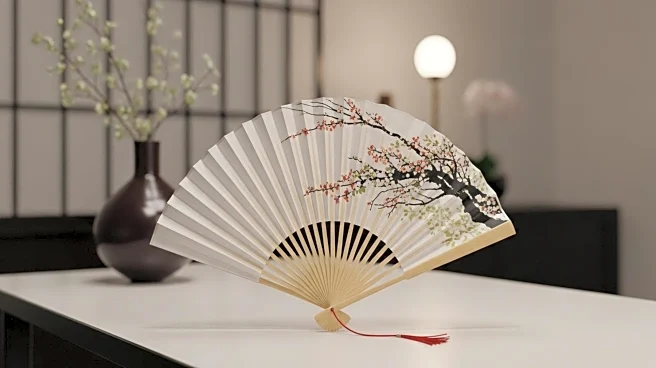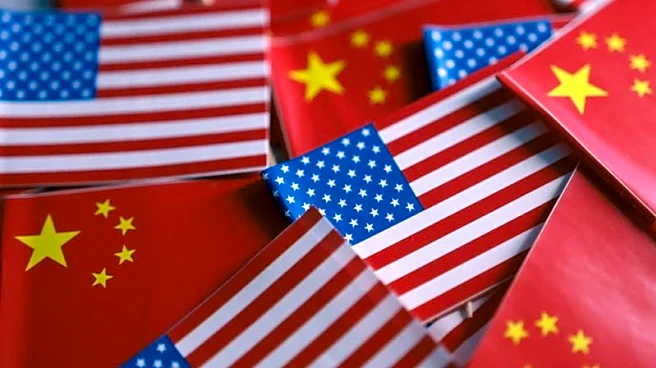What's Happening?
Japan's top trade negotiator, Ryosei Akazawa, has canceled his planned trip to Washington due to unresolved issues concerning rice trade between Japan and the United States. The cancellation comes amid dissatisfaction from Japanese officials regarding a U.S. presidential order that would require Japan to increase its purchases of American rice and reduce tariffs on agricultural products. The order, which is expected to be sent to U.S. government agencies, has not been fully agreed upon by both parties, leading to the postponement of Akazawa's visit. Despite the setback, Akazawa has indicated that he plans to visit the U.S. again before the Trump administration issues an executive order to formally lower tariffs on goods imported from Japan. Japanese representatives are currently in the U.S. to continue discussions with their American counterparts, emphasizing the need for further administrative talks to resolve outstanding issues.
Why It's Important?
The cancellation of Akazawa's trip highlights ongoing tensions in trade negotiations between Japan and the United States, particularly concerning agricultural products. The U.S. presidential order aims to boost American rice exports to Japan, which could have significant implications for U.S. farmers and the agricultural sector. However, Japan's reluctance to agree to the terms underscores the complexities of international trade agreements and the challenges in balancing domestic interests with foreign policy objectives. The outcome of these negotiations could impact global supply chains and trade dynamics, influencing economic relations between the two countries and potentially affecting other trade partners.
What's Next?
Further discussions are expected between Japanese and U.S. officials to address the unresolved issues in the trade agreement. Akazawa's future visit to the U.S. will likely focus on ironing out these differences before the Trump administration proceeds with the executive order. The resolution of these talks will be crucial in determining the next steps in the trade relationship between Japan and the United States, with potential implications for tariff policies and agricultural trade practices.










